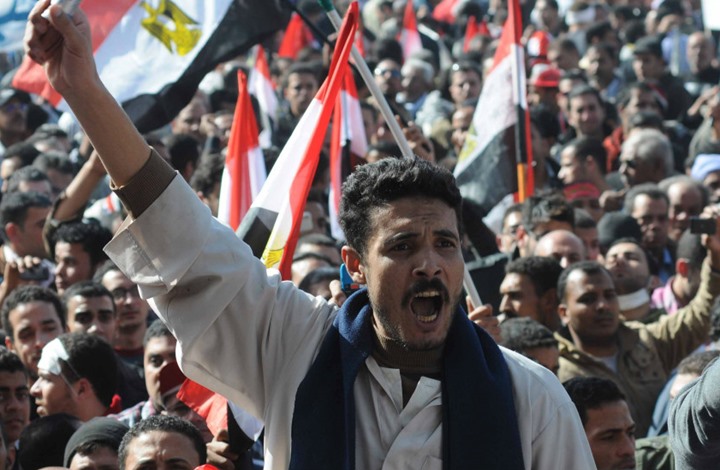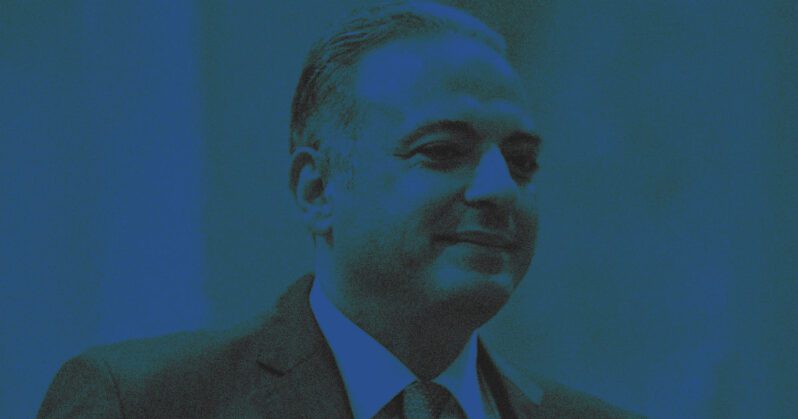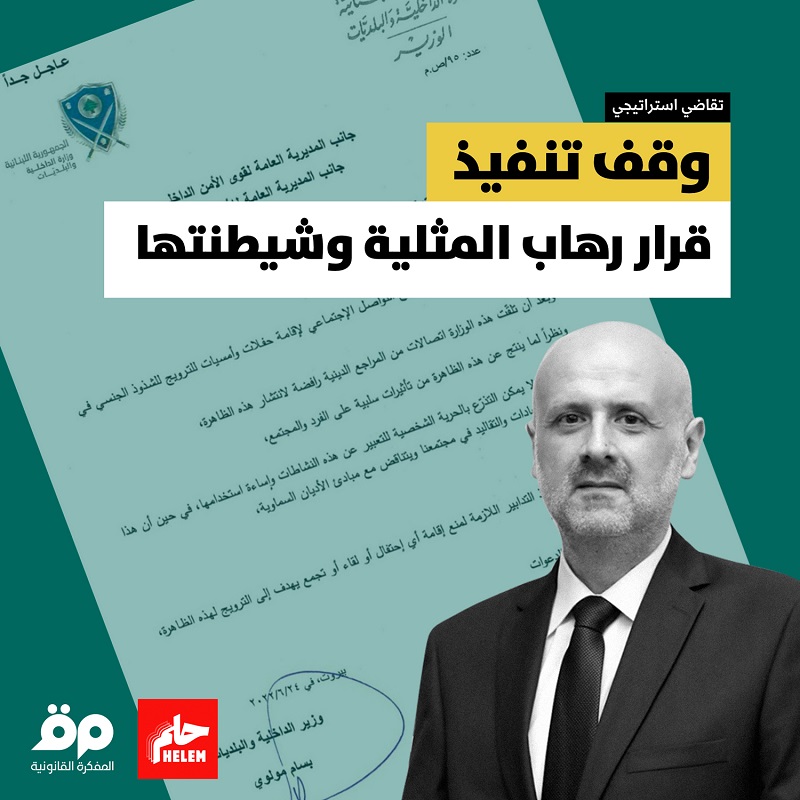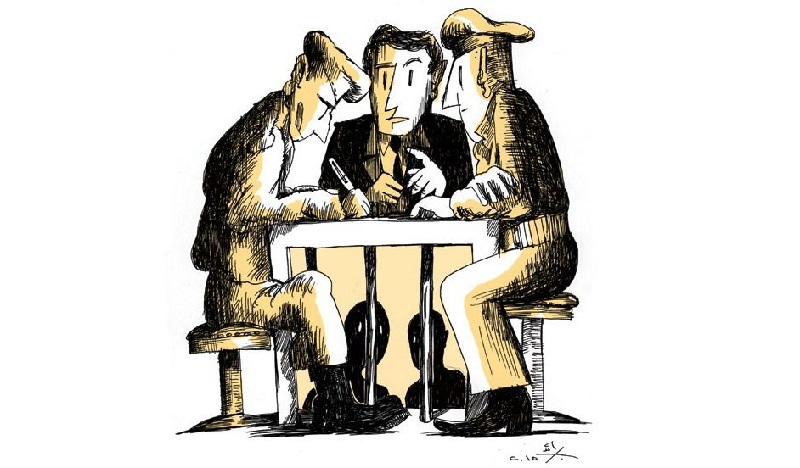Egypt’s September 20 Protests: Mass Arrests

A young man, 32 years old and unemployed, came to Cairo from Qena Governorate in Upper Egypt looking for work after becoming bogged down in debt. The security forces arrested him, telling him, “We’ll search you and then send you on your way”. He was thrown into prison for some time before being presented to the prosecution. A [Ministry of] Interior officer he calls “the pasha” promised him that he would get out, but he remained imprisoned barefoot, not knowing what led him from the courtyards of the mosques at the major public squares to a place also unknown to him, and then to sit with a prosecutor in an official investigation hearing. “I don’t know why they took me – did I do something dangerous?”, he asks the prosecutor. “I don’t know what I did to upset you”.
This is the story of just one detainee among approximately 2,000, according to the information available to the Egyptian Center for Economic & Social Rights (ECESR) per its latest update. This case, namely State Security Case no. 1338 of 2019, differs from previous similar cases because of the enormous number of detainees, the vast majority of whom were arrested at random.
Amnesty International defines arbitrary detention as detention “for no legitimate reason or without legal process”. Testimonies of lawyers who were able to access the detainees in this case indicate that the majority committed no crime and the arrest mechanism is subject to no controls or clear standards. Note that lawyers are virtually the only source of information in this regard because the press was not able to cover the events from the field.
In the past few days, there have been repeated reports about some detainees being released without being presented to the prosecution. However, their number and the percentage they constitute among all the detainees (both those recorded on the lists held by legal centers and those who remain anonymous) are unknown. In the end, the mechanism of selecting those to be released, just like the mechanism for initially arresting them , remains unclear.
A Context Governed by Tight Security and a State of Emergency
The general course of events reveals that the policy of repression is the state’s approach to any kind of opposition. This manifests itself in several ways, most prominently the random arrests but also the detention of lawyers and their incorporation into the cases they are defending, the opening of new cases against activists unconnected to the current event, the gagging of the press, the control over the media, the closure of public space, and the enactment of legislations that restrict freedoms. All this occurs amid the continued imposition of tight security and the renewal of the state of emergency, which allows citizens to be detained without a judicial warrant. Fathi, 28 years old, is one such citizen. He was lured into a security forces van from Isaf Station in central Cairo. He was going to al-Wikala market, famous for selling second-hand clothing, to buy clothes within the budget of a simple laborer as he wanted to look appropriate at the wedding of the daughter of the factory owner he works for. He lives in a room with an attached bathroom in the rural town of Ausim, and he owns only a bed to sleep on and a body upon which to carry the factory’s loads. He cannot read or write. But none of this was enough to prevent him from being accused of spreading false news that disturbs public peace, incites panic, and harms public interest. Fathi responded to the charge with a tremble and confusion, saying, “I swear, Pasha, I have nothing to do with it. I live at God’s mercy. I’m uneducated and I don’t know how to put two words together in writing”.
This in general is reflected in the September 20 protests and what followed via the story of the detained. This story begins with the person’s arrest on unknown grounds and continues to the stage of forced disappearance, the search for them in the police departments, security encampments, and prosecution offices, and their subsequent addition to the lists compiled by legal centers. If the person is found, then the cycle of investigations and remand renewals begins. Then comes the prisoner transportation vans and the struggle of the detainee’s families to confirm their wellbeing. Meanwhile, there is no information about the fate of the arrestees, not even with those who are supposedly in the know, particularly lawyers and prosecutors. One prosecutor questioned a security guard from Alexandria even though he did not participate in the protests. During the investigation, the guard said that he saw in these protests hope for a raise in his wage of EGP2,000 [US$123]. He supports a family of six without having to take handouts from friends and relatives more than once a month to provide for basic nutritional needs. He lamented the charge that awaited him in the prosecution office, namely “joining a terrorist group”, repeating, “I’m charged with poverty”. The investigator, who was uninformed of the reason that the guard was arrested, tried to verbally reassure him at the end of the investigation.
The Detainees Arrested En Masse in the Lawyers’ Narratives
The arrest campaign in this case was extremely random, extending from politicians and activists in the public sphere to people with no connection whatsoever to politics.
Abdulrahman and Thair are two young Jordanian men who came to Egypt to work and study. They were stopped in a search campaign in central Cairo on September 28. Thair was arrested, and Abdulrahman was later arrested from his home. The two later appeared in a video on an Egyptian television program confessing that they participated in the protests. A mutual friend says that they appeared scared and that they read the confessions from a piece of paper. This occurred after the embassy was assured that they would be released soon. Their friends say that there is no political purpose behind their presence in Egypt and think that they were probably tortured or terrorized.
The case includes a known 55 children according to the narrative of lawyer Mohamed Farahat. Among them is a student in the third year of secondary school from Suez Governorate. He was arrested while returning home from a physics class even though he tried to avoid such a scenario by walking at an ordinary pace and not running as protestors around him were being attacked so that he was not thought to be among them. The student’s pleas of “I didn’t do anything” and “I’m a student returning home from class” did not resonate with the policemen as they arrested him.
Girls and women, some elderly, met the same fate in various locations. ECESR’s figures estimate their number to be approximately 85. Among them is Lamia, a teacher who lives in Kuwait. On Friday, September 20, she went to book a return flight from the airline and was arrested. According to a testimony that the lawyer who attended her interrogation posted days ago, she has cancer and had not received her treatment for five consecutive days following her arrest. As she has not memorized any of her children’s phone numbers, Facebook posts were the only means of reaching them and informing them of their mother’s location.
The randomness is also evident in the case of Abdulrahman, who disappeared for a period only to reappear among the case’s defendants, according to lawyer Mohamed Fathi. Abdulrahman has suffered chronic depression since his father died and has suicidal tendencies. But this was not enough for the authorities, which ordered his arrest without considering the risk to his wellbeing, especially since there is no health care in the detention facilities.
Torture, Mistreatment, and Other Violations
The statement by the Egyptian Initiative for Personal Rights noted many violations in the case, including the contravention of procedures, collective interrogations, forced disappearance, and the arrest of lawyers while they perform their work. Lawyers defending the accused document the above mentioned violations and others, such as torture, that were not mentioned in the statements by legal centers, perhaps inadvertently left out because of the focus on compiling the numbers of detainees and searching for those disappeared. Among these reasons, the fear of prosecution also cannot be neglected.
The 2018 report by the Egyptian Organization for Human Rights on the phenomenon of arbitrary detention under the Emergency Law explains the exceptions that breach public and personal freedoms. However, there are rights that may not be infringed even when the Emergency Law is in effect, foremost among them “freedom from torture and other cruel, inhuman, and degrading treatment”. Nevertheless, according to lawyer Nabeh Elganadi’s narrative, one detainee was ridiculed by the prosecutors for being “disabled”. The investigator threatened the same young man and used inappropriate phrases.
One lawyer publicized another example of a child not yet 18 years old who endured torture and electric shocks to his hands, which left burns on his fingers, while in one of the security encampments in Cairo. In the lawyer’s post, which was later deleted, she said that the child feared mentioning this in the investigations lest he be tortured again. The child asked the lawyer to tell his family his location following his random arrest, imploring her not to mention his torture because his father is sick.
Conclusion
This time, the detention campaign targeted not only politicians or people who participated in the protests, as explained above. All we know so far is that police were given a free hand in Egypt’s streets and public squares, so they tightened their grip on whomever they found in their path, even though the investigators themselves were left unable to reason why such people were in the prosecution premises. Now they face mostly unknown fates, not knowing how many years they will serve.
This article is an edited translation from Arabic.
Keywords: Egypt, Protest, Torture, Arrest, Detention, Forced Disappearance



